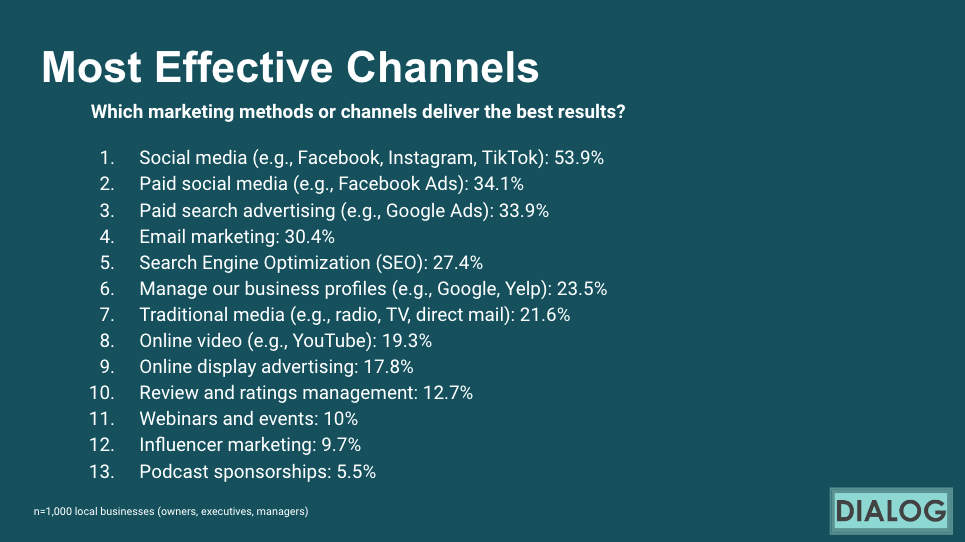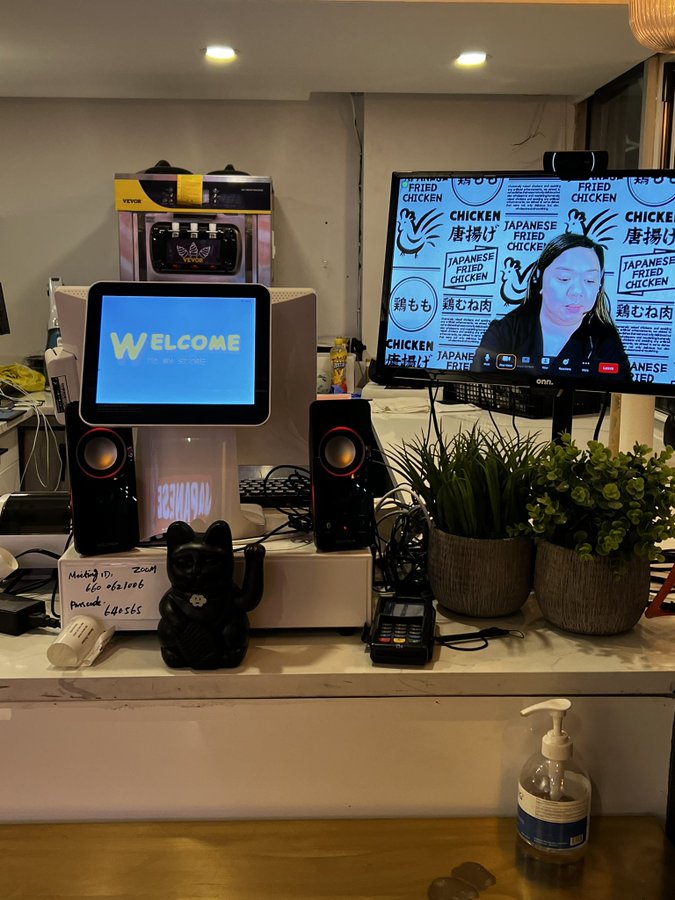Rethinking Content for SEO, SMBs Neglect GBP, Local Virtual Assistants

Rethinking Content Strategy
The question for many SEOs and content marketers going forward is: how much effort to put into content; how much can we integrate AI to expedite things? Wil Reynolds of Seer Interactive argues that to escape an increasingly frequent "sea of sameness" content problem you have to think broadly and unconventionally about traffic and be willing to sacrifice rankings in the short term to gain in the long term. He critiques the "SEO mindset," which takes a largely formulaic approach to content creation. As an alternative, Reynolds expresses several principles to guide content strategy: be genuinely (even uniquely) helpful to the audience, uplift brand perception, create something worthy of being shared in private groups, make the content good enough that you'd be willing to pay to promote it. Using this approach to rewrite an SEO RFP blog post, Reynolds says that his rankings initially "tanked" but ultimately the post reached #1 (he's not specific about the time frame). He then says this experiment is changing his thinking about content and even about the future of his agency. This article is unlikely to change many minds about content for SEO, where "good enough" and increasing volume are often the dominant considerations.

Our take:
- Reynolds does concede that "standard SEO content" has a role to play to gauge potential organic traffic for particular topics or keywords.
- His arguments are consistent with Google's mantra: create content for people not for search engines. But, as Reynolds also points out, Google often rewards average content on domains with high authority (see Forbes).
- Then there's The Verge's funny "meta" critique of SEO and Google in the context of a "best printer" article that's partly AI-generated and still ranks well.
Survey: Only 43% Managing Biz Profiles
If you're working in local SEO you probably have the sense that most local businesses are focused on ranking in Google and, perhaps with your help, have claimed and optimized their Google Business Profiles. That's because the clients you're working with have become more sophisticated about Google. But the majority of SMBs are not focused on GBP optimization. In a separate research program I'm involved with, we surveyed 1,000 local business decision-makers and asked questions on multiple topics. Among them, we asked about what marketing channels they used and which ones were most effective. Social media was by far the top channel and rated as most effective. (Follow-up interviews have revealed that many of these respondents don't really track performance.) Business profile management was number five for usage and six for effectiveness; SEO was six (usage) and five (effectiveness). Yet paid search was number four for usage but third in effectiveness. In other words, paid search was more widely used and seen, incorrectly, as more effective by these respondents than free GBP adoption. Then there's review management – in tenth position. WTF.

Our take:
- Note: only 18% of these respondents were working with agencies/vendors for digital marketing. Company headcount ranged from 1 to 499 people.
- It's kind of amazing at this point that GBP isn't more widely adopted; only 43% of SMBs said they were managing business profiles.
- By contrast, social media has been much more effective in capturing small business awareness and adoption, despite Google's ubiquity.
Local Virtual Assistants Near You
Cashiers and customer service retail positions represent more than 6% of all US jobs, according to the US Census Bureau. Many states and cities have been raising minimum wages for these often entry level positions (e.g., CA's new $20 fast food minimum wage), which have drawn business-owner ire. Independently, these types of jobs have been under pressure from automation or offshoring. And many business owners complain about hiring and retaining employees. This combination of conditions is spawning new "solutions" – virtual assistants in local storefronts. First exposed by Brett Goldstein and then covered by the New York Times, a company called Happy Cashier, installs screens in local restaurants (in NYC). The screens beam in live agents from the Philippines who "offer warm greetings, explain the menu and beckon guests inside." The individuals on the other end of the screen are paid $3 per hour but not subject to local wage laws because they're employees or contractors of the startup, not the local business. Where some people see creativity and innovation, others see exploitation or a potentially bad customer experience.

Our take:
- Hiring is a major SMB pain point. AI assistants and other tech-based solutions such as Happy Cashier could become much more common.
- Proponents argue this helps SMBs cope with hiring challenges and rising costs.
- Customer acceptance is the wild card. In certain retail categories the combination of automation and virtual employees might catch on.
Recent Analysis
- Near Memo episode 153: Standardizing review processes to avoid fear, Google cries wolf around DMA, and the future of SGE.
- Seattle Surgeon Guilty of Breaking Law with Review Practices, by Mike Blumenthal.
Short Takes
- Sistrix: 49% of all Reddit rankings appear in the Top 10.
- Case study: optimizing service area pages for better lead quality.
- Emails, subject lines for Google support (re GBP, Maps).
- Reviews and expert guides help you rank in SGE product results.
- Using schema markup could boost SGE inclusion chances.
- Brand management on Reddit, now that it's so visible.
- Google "disowns" AI outputs, seeks to maintain 230 immunity.
- Google to fight "reputation abuse spam" with further actions.
- Google to consolidate location sharing controls on Android.
- Quora ranking for health symptom SERPs, results of dubious quality.
- OpenTable to add first names and profile pictures to reviews.
- Facebook, Instagram B2B ads as substitute for costly LinkedIn.
- Google blocks some news in CA to protest Journalism Preservation Act.
Listen to our latest podcast.

How can we make this better? Email us with suggestions and recommendations.

